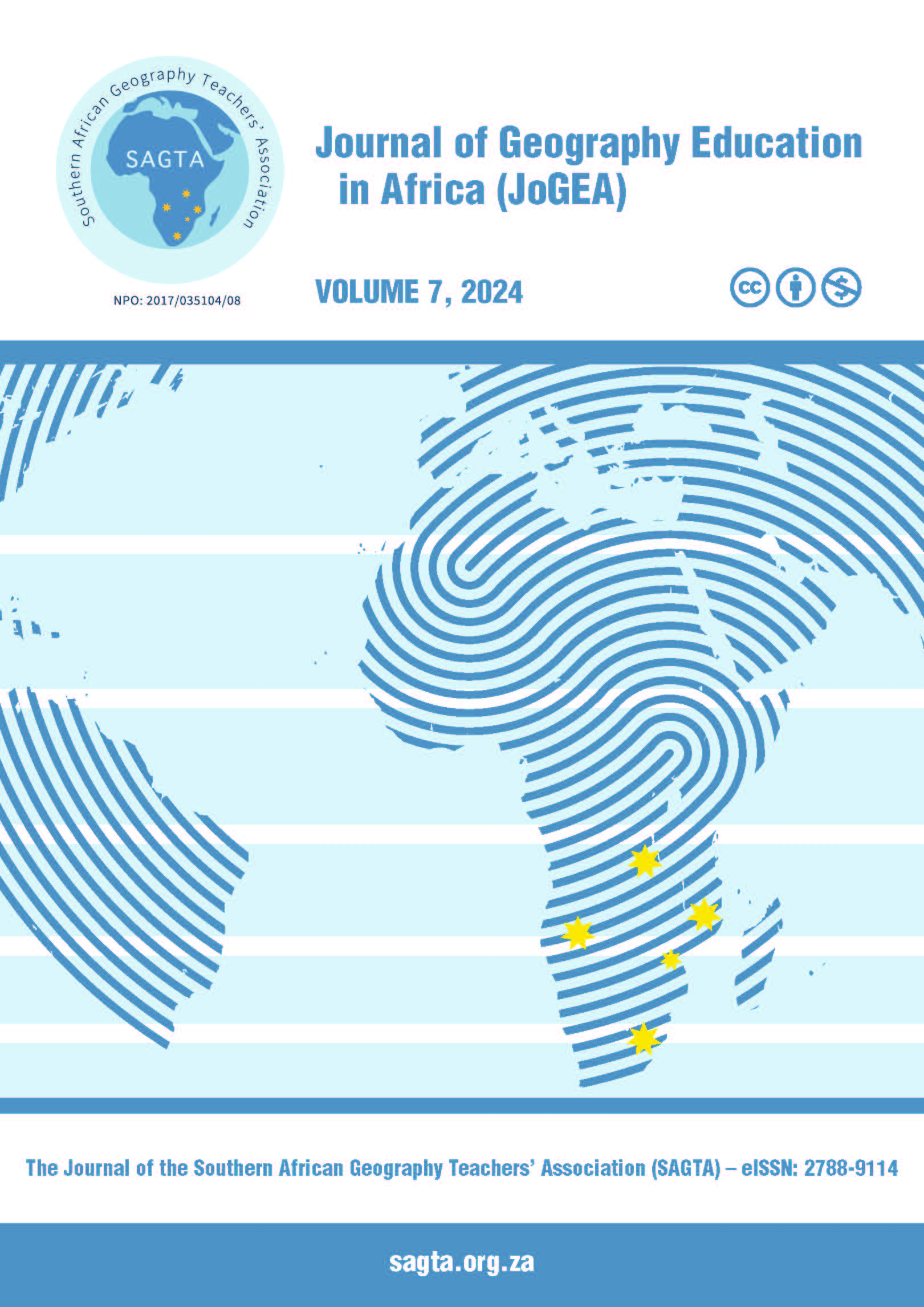Representation of Climate Change Adaptation in Geography Education Modules at the University of KwaZulu-Natal (UKZN)
DOI:
https://doi.org/10.46622/jogea.v7i1.4991Keywords:
education for climate change adaptation, representation, geography education, pre-service teacher training, content analysisAbstract
This article extends the existing emphasis on integrating climate change adaptation into pre-service teacher training, aligning with the South African National Climate Change Response White Paper. Employing Krippendorff’s quantitative word frequency analysis based on the Glossary of International Climate Policy Terms, the study relies on Hall's theory of representation to examine the representation of education for climate change adaptation. The investigation centres on the role of pre-service teacher training in fostering climate change adaptation awareness in South Africa. Findings adopted a graphical presentation preceded by a concise discussion. The key findings demonstrated that, while the national Curriculum and Assessment Policy Statement faces criticism for insufficiently addressing climate change adaptation, there are areas of positive practices within the geography education modules at the University of KwaZulu-Natal, highlighting areas of good practice in course packs.
Downloads
Published
Issue
Section
License
Copyright (c) 2024 Shaylen Naidoo, Gavin Heath

This work is licensed under a Creative Commons Attribution-NonCommercial-ShareAlike 4.0 International License.


